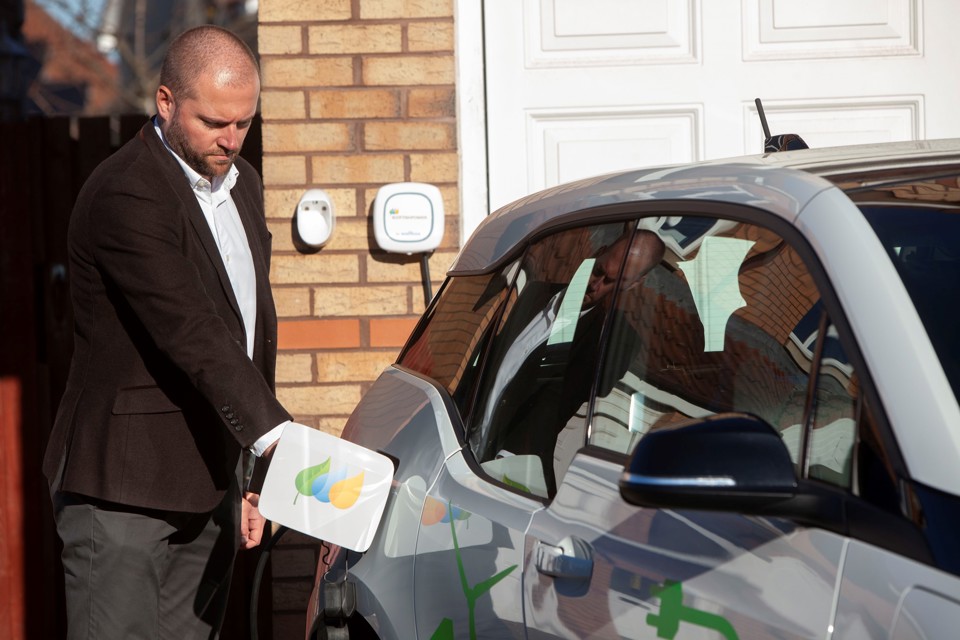The domestic electric vehicle (EV) smart charge points that become compulsory on UK homes from this week could usher in a new era of travel taxation and energy rationing, it has been claimed.
MotoNovo Finance’s commercial director, Debbie McKay, believes that the Electric Vehicles (Smart Charge Points) Regulations 2021 are set to create a platform for UK Government to recoup taxes lost on petrol and diesel as the nation transitions to zero-emissions transport.
While the average tank of petrol now costs ion excess of £100 – resulting in a tax windfall for Whitehall – Government stands to lose around £37bn of revenue earned by fossil fuel taxes through the shift in the longer term.
But McKay has said that connected domestic EV chargers will help plug the gap, while allowing energy providers to charge more for electricity used to charge EVs.
 “The legislation will enable EV charger usage to be billed at higher electricity prices than domestic electricity by operating with a dedicated smart meter,” she said.
“The legislation will enable EV charger usage to be billed at higher electricity prices than domestic electricity by operating with a dedicated smart meter,” she said.
“Additionally, it will allow for the potential of 'electricity rationing' by deciding when EVs can be charged, helping to avoid overloading the National Grid at peak times as EV utilisation increases.
While the new regulations signal that electric rationing and separate pricing could apply to EV chargers at homes and workplaces, it does not necessarily mean they will happen immediately.
And McKay acknowledged that one of the key functions of the new legislation was to address the risk of EV charging overloading the National Grid and potentially ease the cost of charging by “providing the capability to encourage recharging at low peak times when costs might also be lower”.
“However, the stark reality is that the move from fossil-fuel vehicles, which raised £37bn for the Exchequer in fuel duty and vehicle excise duty (VED) revenues has to be replaced somehow as EV popularity increases,” she said.
"One of the crucial appeals of an EV is lower running costs. On fuel costs alone, someone travelling 30 miles to work and back could save £11 a day or £1,980 based on 180 days of commuting by switching from diesel to an EV.
“The challenge will be how much of this saving would people be prepared to sacrifice to reduce carbon dioxide emissions and support other vital areas of tax spending.
“Perhaps, even more importantly, will be when we might be prepared to embrace such a change in light of current inflation."
Early suggestions of an energy tax for home charge points will be a blow for potential EV buyers looking to weigh-up cost saving in the wake of Government's axing of the plug-in car grant (PiCG).
In a recent AM News Show podcast Auto Trader brand director Marc Palmer asserted that “areas of affluence” are the UK’s hotspots for interest EVs as the cost-of-living crisis continues to squeeze car buyers’ purse strings.
“The correlation between charge points and EV interest doesn’t exist, not even the ultra-low emissions zone or clean air zones”, said Palmer.
“Affluence is (the key). It’s not a North/South divide or urban/rural, where people have got a place to charge the car and the means to afford it, that’s where we see the most interest.”















Login to comment
Comments
No comments have been made yet.